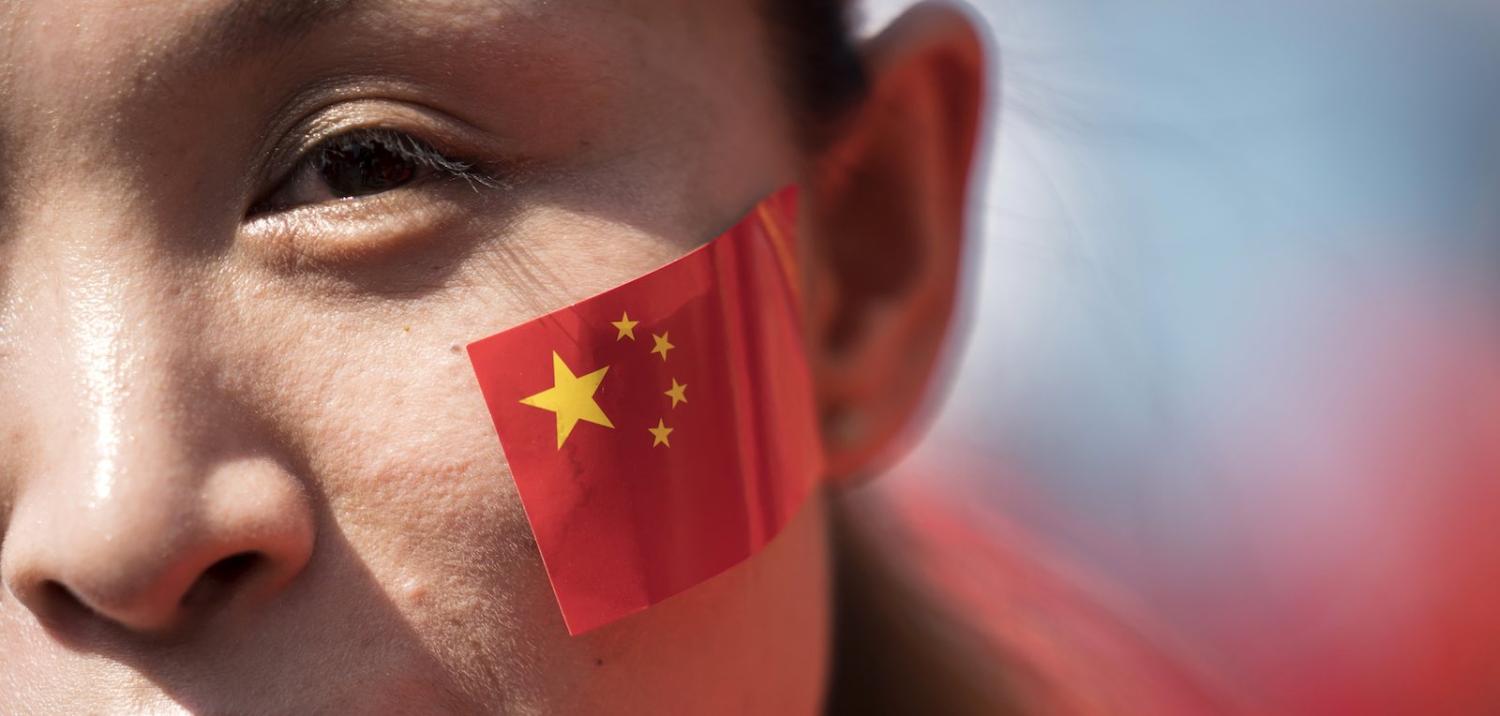Book review: Leta Hong Fincher, Betraying Big Brother: The Feminist Awakening in China (Verso, 2018)
 In China, a country of contradictions, a feminist movement emerged when women connected with each other using technology and social media. Through interviews with young women, and in particular the story of the Feminist Five, who were detained on International Women’s Day in 2015 for 37 days, Leta Hong Fincher’s Betraying Big Brother: The Feminist Awakening in China is a vivid, insightful read that will empower feminists around the world.
In China, a country of contradictions, a feminist movement emerged when women connected with each other using technology and social media. Through interviews with young women, and in particular the story of the Feminist Five, who were detained on International Women’s Day in 2015 for 37 days, Leta Hong Fincher’s Betraying Big Brother: The Feminist Awakening in China is a vivid, insightful read that will empower feminists around the world.
Leta Hong Fincher is a journalist and scholar who spent years living in China reporting on a wide range of feminist issues, including the “leftover” women. She writes with the rigor and depth of a journalist, making it easy to understand the struggles and triumphs of the Feminist Five. They are the heroes of this book, those who challenge China’s patriarchal policies and institutions and encourage other women to do the same.
In the age of #MeToo, China’s media censorship has largely shielded its citizens from participating in the feminist movement. However, Hong Fincher writes that a growing number of women are using social media platforms and forums to connect with and rally others. In lieu of the #MeToo hashtag, emojis of a rice bowl and bunny were used, as the words “rice bunny” in Chinese are pronounced “mi tu”. She draws from her media background, using anecdotes and quotes from sociologists, anthropologists, and others, to convert the complicated Chinese history of important issues, such as the one-child policy, into digestible chapters.
The desire simultaneously to show off these women’s accomplishments while suppressing feminism on the whole make China a unique example.
Hong Fincher provides context for readers to understand the political environment that makes the Feminist Five so exceptional. She discusses the 1958 Great Leap Forward, mentioning that the Communist Party is “haunted by its own historical success in mobilising millions of women to join the revolution”. To take advantage of women’s labour power, they sent them to the fields. By the 1970s, China had developed the largest female workforce in the world. They could compete with other women, as well as men, for jobs. But this was a faux liberation, because while it deemed employment socially acceptable, women still carried the burden of completing all household and childcare duties.
Perhaps one of the most shocking insights in Betraying Big Brother is into the notorious one-child policy. Introduced in 1979, at the same time China opened its economy to free-market reform, the government essentially seized control of women’s bodies. For more than three decades, Chinese women faced “large-scale forced abortions, sterilizations, and compulsory birth control, including the coercive insertion of intrauterine devices (IUDs) on a mass scale.” But by 2015, when the one-child policy failed, the government attempted to reverse the damage and encourage “high quality” (urban, educated) women to bear two children. Hong Fincher describes the mass aggressive media and propaganda tactics that suddenly promoted the glories of having two children to young families, framing the authoritarian government as manipulating the population in a social experiment to fulfil their own agenda.
For the Feminist Five, they leveraged their network to inspire and challenge policies, collaborating with other like-minded women, even after being released by authorities. Xiao Meili started a competition on Weibo, calling females to post photos of their unshaven armpits to dispel stereotypes of femininity. It was dangerous to be so brazen, but they did it anyway.
Many of them went on to study human rights and law at foreign universities. Li Maizi, one of the five, continues to advocate women’s rights and refuses to censor her work – believing authorities would not arrest her before she attended her British master’s program, “since the Chinese government was trying to project an image of itself as a world leader in higher education”. It’s contradictions such as these, the desire simultaneously to show off these women’s accomplishments while suppressing feminism on the whole, that make China a unique example of feminism. The five women, among others, will continue to contribute to the global movement by building feminist solidarity in China and abroad.
The book’s strength is in the comprehensive account of the impact media and technology have had on feminists in China, painting the picture of “us against them”. Hong Fincher goes to lengths to report on specific details and delivers a compelling narrative that is enjoyable to read.
Betraying Big Brother will no doubt empower with its vibrant descriptions of detainment, of solidarity, of creative acts of activism, and what goes on behind the scenes of bold, young Chinese feminists. The links made between history and current events are fascinating. By the end, you’ll feel the fire and passion of the feminist movement, enough to write a song about it – or at least go on YouTube to listen to the one written by the Feminist Five.

